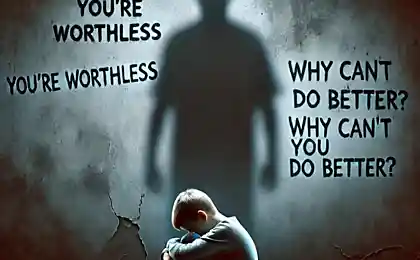297
Parental Guilt Manipulation: How to Maintain Emotional Health

Introduction: Why does guilt become a weapon?
Guilt is one of the strongest emotions a person can experience. It is formed in childhood and is often used by parents as an educational tool. However, when guilt becomes a weapon of manipulation, it can lead to serious emotional consequences for everyone involved. In this article, we will look at how parental guilt manipulation affects family relationships and how to practice eco-friendly parenting to maintain emotional health.
What is Parental Guilt Manipulation?
Parental Guilt Manipulation is a form of emotional influence in which parents consciously or unconsciously use the child’s guilt to achieve their goals. This can manifest itself in the form of phrases such as: “I sacrificed everything for you”, “You will take me to the grave” or “If you loved me, you would do as I ask.”

Such statements may seem harmless, but they form a persistent sense of guilt in the child, which can persist throughout life. This feeling becomes the basis for manipulations that can continue even into adulthood.
Why is this happening?
The causes of parental guilt manipulation can be different:
- Fear of loneliness: Parents are afraid that their children will “leave” them and try to keep them close, causing guilt.
- Dissatisfaction with your own life: When parents fail to fulfill their dreams, they can project their expectations onto their children, demanding more from them.
- Traditions of education: In some cultures, the manipulation of guilt is the norm and is passed down from generation to generation.
Consequences of Guilt Manipulation
Guilt manipulation can have long-term effects on emotional health. Here are some of them:
- Low self-esteem: A child who constantly feels guilty begins to doubt their abilities and decisions.
- Relationship difficulties: Guilt can be transferred to other relationships, creating patterns of addiction and unhealthy attachment.
- Emotional burnout: Constant guilt can lead to chronic stress and emotional exhaustion.

These effects can manifest in both childhood and adulthood, affecting all aspects of a person’s life.
How to practice eco-friendly parenting?
Environmental parenting is an approach that involves respecting a child’s emotional needs and abandoning manipulative parenting practices. Here are a few principles to help you practice green parenting:
- Mindfulness: Try to understand which of your actions can cause guilt in your child. Mindfulness is the first step to change.
- Open communication: Talk to your child about their feelings and emotions. Let him know that his feelings are important and valid.
- Respect for borders: Teach your child to set boundaries and respect them yourself. This will help them feel safe and secure.
- Support instead of pressure: Instead of pressuring your child, support them in their aspirations and decisions.
Conclusion: How do you get rid of guilt?
Guilt is a natural emotion, but when it becomes a tool of manipulation, it can destroy relationships and harm emotional health. Being aware of the problem and practicing eco-friendly parenting will help you avoid these pitfalls. Remember that healthy relationships are built on respect, trust and openness, not guilt.
If you feel that guilt manipulation has already affected your life, don’t be afraid to seek help from a psychologist. Working with a professional will help you understand your emotions and build healthier relationships with loved ones.























